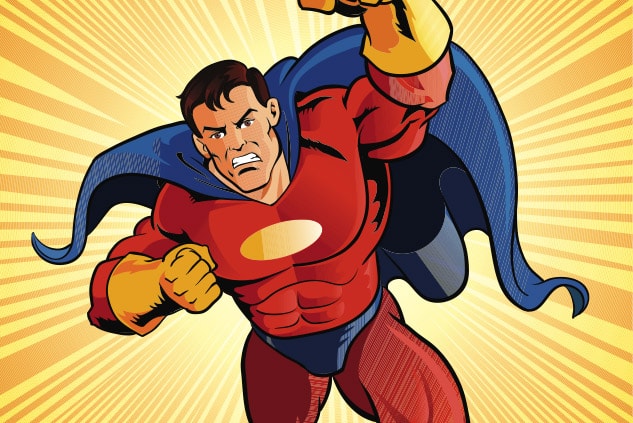Do Superheroes Exist?

by Kathy Seaton
 I recently watched another TED Talk, this one by Margaret Hefferman. (I’m watching a lot of TED.com lately.) She talks about the “pecking order” at work and the suppression of employees that aren’t the super stars. Her talk was captivating, especially because many think to themselves that this is “my company.”
I recently watched another TED Talk, this one by Margaret Hefferman. (I’m watching a lot of TED.com lately.) She talks about the “pecking order” at work and the suppression of employees that aren’t the super stars. Her talk was captivating, especially because many think to themselves that this is “my company.”
Maybe we work for a boss that takes all of the credit, or a peer that is so focused on his individual work that he resists collaboration. Or maybe, you’re at a company where upper management pits people against each other, only motivated by the bottom line over anything else. Whatever the situation, if you’re in it, it sucks.
So what is it about the Superman that keeps employers so interested? Superman is about one man. Just one.
But isn’t it true that these types of people actually spawn competition, dysfunction, and aggressiveness amongst teams? Isn’t this the type of environment that actually squashes productivity?
We’re now born to compete, but having to do that at work is ridiculous and uninspiring.
Hefferman introduces a concept called social capital, the idea that the relationships between people, and groups of people is what really counts. The bonds, loyalty, and trust that people develop between each other is what really gives companies momentum.
And just like an professional sports team, its time that builds this foundation. Because with time, teams get better and smarter.
I found this to be true during my MBA. I went to Pepperdine and we did everything in a group setting. Not only did I make great friends, I had help, which I needed desperately because I didn’t have all of the answers. We got to the point where we became safe together. Although at times there was conflict, the candor that emerged between us brought out the best in each of us and creativity was born.
Hefferman went to one of her clients and she found that they instituted a rule where there were no coffee cups allowed at desks. They wanted people to congregate around the coffee pot, just to talk, and get to know each other. What a novel, organic, idea.
MIT studied the notion of high achieving groups. And what they found is that the aggregate IQ’s of high achieving groups didn’t lead to more success. In fact, what they did find is the groups with a high level of teamwork and empathy for each other actually performed better. These groups treated each other like peers, they worked together, they got to know each other, and many were women.
Fostering teamwork and relationships is a high stakes proposition.
But what is really at stake here is breeding energy and imagination. Hefferman said that “companies don’t have ideas, people do.” And that right there is the impetus to behave differently at work.
Ideas don’t come from Superman, they come from a legion of super-heroes that challenge each other and ask for support find the best solution. This is the idea that togetherness becomes commonplace and relationships become authentic.
